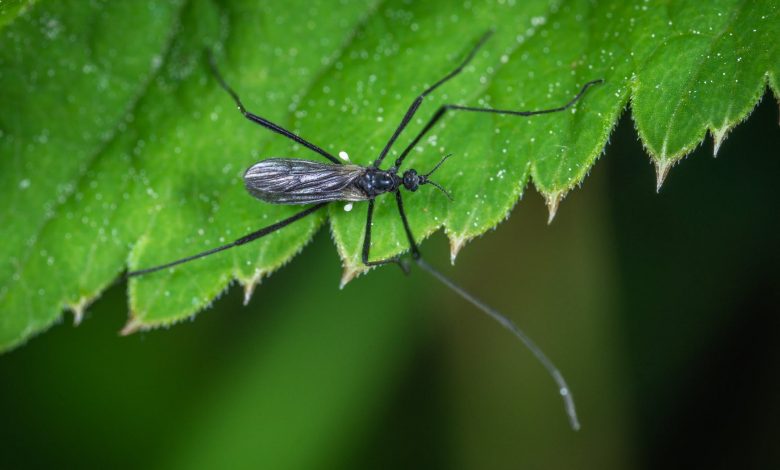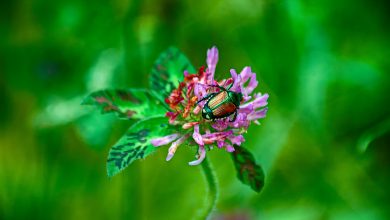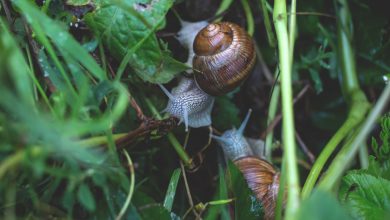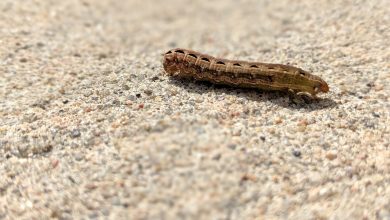12 Organic Homemade Pesticide Recipes for Your Garden

Enjoy Gardening Without the Pests
A big part of growing a successful garden is making sure that pests and insects don’t get to your vegetables before you harvest them. Unfortunately, most store-bought and conventional pesticides contain toxic substances that we spray onto the very same plants that we intend to eat in order to kill off living things that pose a threat to our plants. These toxic chemicals come with a lengthy list of dangerous side effects though, and have been linked to numerous health conditions, ranging from headaches, auto-immune diseases, cancer, and neurological problems.
However, warding invasive species away from your garden doesn’t have to involve dangerous chemicals at all. There are countless natural ways to eliminate these pesky critters away from all of the hard work you’ve put into making your garden a safe space for plants to flourish and grow.
Try out these organic pesticides on your garden. None of them contain dangerous chemicals, and all are made from all-natural ingredients that you can find around your home or your hardware store.
Garlic Spray
Garlic is a powerful medicine. It has been used for centuries for its antiviral, anti-fungal, and antibacterial properties. It also works as an effective pesticide when sprayed directly onto the leaves of plants or vegetables. Making it is easy. Just simply peel and mince the cloves from five bulbs of garlic and mix with 16 ounces of water in a spray bottle. Let the garlic infuse the water for at least 12 hours. Strain the pieces of garlic out and add a tiny dash of natural dish soap. Spray on plants once or twice per week. Make a new batch weekly to keep it fresh and effective, for best results. Do be careful using this spray on vegetables close to harvest time, as the strong garlic scent may affect the flavor of the food. Only spray on the parts of plants that are affected by pests.
Neem Oil
Neem oil comes from the leaves of a neem tree, and the oil has a strong, unpleasant odor but works as an effective remedy for a wide variety of ailments and issues. It also works as a powerful insect repellent and natural pesticide. It is known to be effective for warding off over 200 different species of insects, as well as fungi and mildews. To make a pesticide with neem, mix a tablespoon of pure, cold-pressed neem oil with half a teaspoon of natural dish soap, and a quart of warm water. Spray onto the leaves of affected plants. The oil is effective against pests for up to 22 days, so long as it doesn’t rain. If it rains, then the oil will be washed off from the leaves and will need to be reapplied.

Lemon Insecticide
This recipe is particularly effective for warding off aphids, and it is extremely easy to make. Bring a pint of water to a boil and add the grated rind of one lemon. Allow to steep overnight. Add a few drops of lemon essential oil to make the mixture even more potent. After the mixture has steeped for at least 12 hours, strain through a cheesecloth or fine mesh sieve. Pour the liquid into a spray bottle and spray on the leaves of affected plants.
Castille Soap Spray
Soap-based pesticides are effective for eliminating soft-bodied insects like aphids, mealybugs, and spider mites. Make sure to choose a concentrated castille soap that doesn’t contain additives and fragrances, and is ideally organic. To make the spray, stir a tablespoon of soap into a quart of warm water and spray the water onto the leaves of the affected plants. You can add a few drops of lemon essential oil or a dash of cayenne pepper for extra effectiveness.
Rubbing Alcohol
Not surprisingly, rubbing alcohol is wonderfully effective at warding off pests in your garden naturally. Isopropyl rubbing alcohol at 70% or 90% is ideal for killing any soft-bodied insects who have been feasting on your plants. Just put some in a spray bottle and spray directly onto the affected plants. For a smaller infestation, soak a cotton swab in the rubbing alcohol and dab directly onto the insects. For larger infestations, spray the entire plant, including the stems, flowers, and undersides of leaves. The alcohol will evaporate when it is exposed to air or sun and won’t cause damage to the plant. Repeat once or twice a week until the insects are eliminated.
Essential Oil Sprays
Essential oils are handy and effective pest eliminators. Some essential oils even work to suppress fungus as well as bigger insects. Here are some common essential oils and their uses:
- Rosemary essential oil eliminates fleas, mosquitoes, insect larvae, and flies.
- Clove oil deters many species of large insects.
- Cedar wood and pine oils deter slugs and snails.
- Thyme oil works against potentially dangerous biting insects, like ticks and chiggers. It also eliminates roaches.
- Peppermint oil is effective against beetles, fleas, and aphids.
- Lemon oil is effective against a variety of insects.
- Citronella oil is effective against flying insects, including mosquitos.
Oil Spray
This is one of the easiest oils you can make. It is simple, but wildly effective against killing soft bodied insects, including aphids and mites by essentially drowning them in oil. Simply mix a cup of oil with four cups of water and a quarter of a cup of soap. Mix into a spray bottle. Spray onto the leaves of affected plants, and directly onto insects whenever possible. Re-apply every five to seven days.

Egg Shells
Start saving your egg shells, because this simple household ingredient is wildly effective against a variety of pests. Simply grind 10-12 egg shells in your blender until a fine powder has formed. Sprinkle the powder directly onto the affected leaves, or onto the insects. You can also sprinkle on the ground area around the base of the plant to prevent new insects from finding their way onto the plant.
Epsom Salt Pesticide
Epsom salts aren’t only for bathing sore muscles; they are also very effective for combatting unwanted pests in your garden. You can simply sprinkle the Epsom salts around the base of the affected plant. Or you can dissolve one quarter of a cup of the salt into a quart sized spray bottle. This spray essentially kills snails, slugs, and beetles upon direct contact with the spray. When sprayed onto leaves of affected plants, it ensures that these insects keep their distance.
Cayenne and Onion Spray
This natural spray is not only potent and effective, but it is smelly enough to keep most living organisms far away from your garden. Put one onion into a blender with three cups of water until smooth and well blended. Then, add a teaspoon of cayenne pepper powder. Transfer the mixture to a spray bottle. Spray leaves, flowers, and stems of affected plants. Reapply as needed, or every three to five days.

Tobacco Spray
Tobacco is not only harmful to humans; it will also kill off unwanted insects in your garden. Be sure to use an organic brand of loose rolling tobacco for this spray. Mix a cup of the loose, organic tobacco into a half gallon of water, and let it steep overnight. By the morning, the mixture should be light brown in color. Transfer to a spray bottle and use on the leaves of affected plants. This spray should not be used on any plants in the solanaceous family (this includes tomatoes, eggplants, peppers, etc.)
Chrysanthemum Flower Tea
Chrysanthemum flowers contain a chemical substance called pyrethrum that invades the nervous systems of insects and paralyzes them. To make this spray, bring 100 grams of the dried flowers to a boil in 1 liter of water. Let the mixture simmer on low heat for twenty to thirty minutes. Strain the flowers from the water, and pour into a spray bottle. Spray onto the leaves, stems, and flowers of affected plants. It can also be sprayed directly onto insects to kill them and to stop them from eating your plants. The mixture can be stored for up to two months. Add neem oil to enhance effectiveness.
Identify Which Insects are Eating Your Plants
It helps to be able to identify which insects are eating your plants. This is because various natural pesticides work better for targeting different types of insects, as opposed to chemical pesticides which just kill everything they come into contact with. Some natural pesticides will work effectively to kill off aphids, while others work better to kill off larger insects. Thus, accurately identifying which insects are eating your plants is a crucial step to figuring out which natural pesticide solution will eliminate your insect problem.



